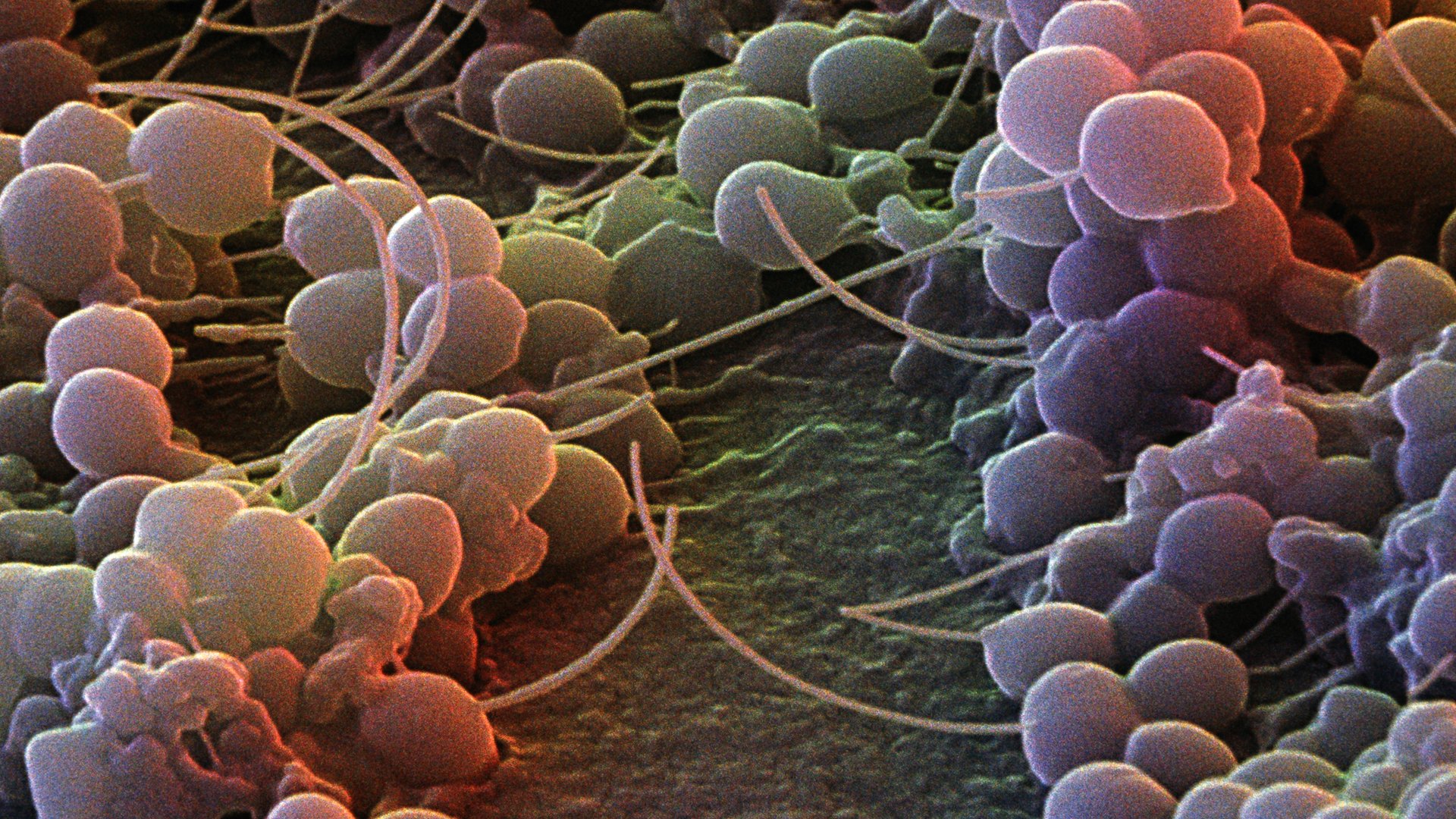Many strains of the Staphylococcus genus of spherical bacteria live on our skin. Staphylococcus epidermidis is the most common skin bacterium. It prefers living in sweaty places, such as the armpits and has a secret weapon.
Many strains of the Staphylococcus genus of spherical bacteria live on our skin. Staphylococcus epidermidis is the most common skin bacterium. It prefers living in sweaty places, such as the armpits and has a secret weapon.
Bunches of grapes
Staphylococcus epidermidis lives on everyone’s skin. The bacteria prefer sweaty places, such as your armpits, but are also found on your back and in your nostrils. Together with other micro-organisms, they produce substances from sweat, bringing about the body odour associated with perspiration. These bacteria, just like other Staphylococci cluster together like bunches of grapes. Staphylococcus epidermidis protects us from harmful bacteria, such as Staphylococcus aureus.
Secret weapon
Staphylococcus epidermidis is harmless but Staphylococcus aureus is anything but. The latter can cause serious intestinal problems. Fortunately, S. epidermidis helps our body defend itself against S. aureus. To do this, S. epidermidis even employs a secret weapon: serine protease Esp. This is an enzyme that can slow the growth of S. aureus. Unfortunately, not all S. epidermidis produce the enzyme, so some have to manage without it.
(Safe) high five
As a permanent resident of our skin microbiome, it will come as no surprise that we regularly leave S. epidermidis somewhere. In fact, we greatly influence our regular environment and regular roommates. Within a household, the microbial communities of residents, of frequently touched surfaces such as door handles and furniture, and even of pets, show a high degree of similarity.
The pandemic caused by the coronavirus SARS-CoV-2 has resulted in people working at home much more than before. The microbial composition of your home will resemble your skin microbiome more than ever. On the other hand, there is much less exchange of microbes among colleagues in the office and at the coffee machine. Diversity in hand microbes is important however, it keeps you healthy. A diverse community of skin microbes is more resistant to potentially harmful microbes. So whenever it's safe to do so, shake hands extensively. It is good for your social contacts and good for your microbes.

